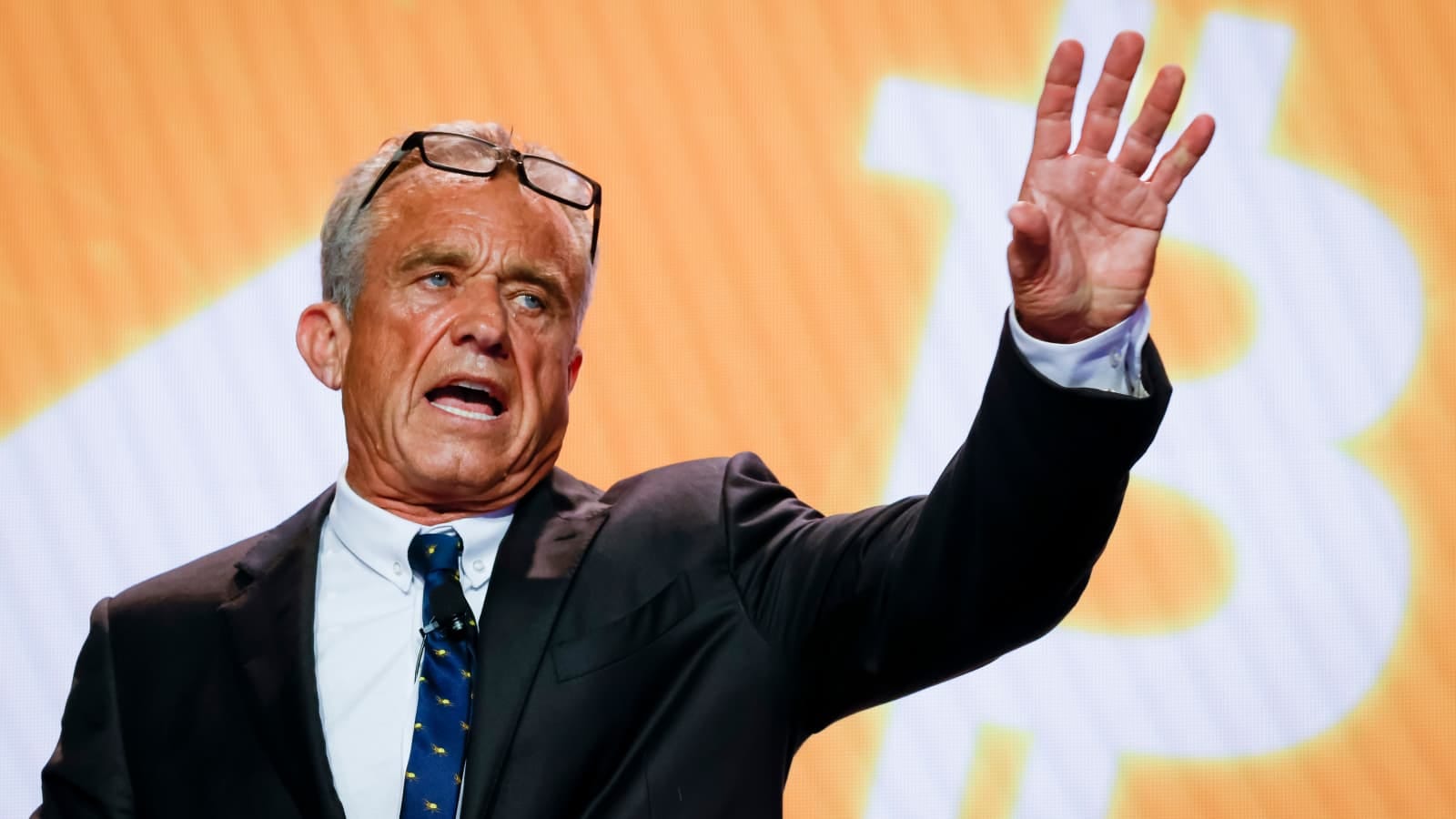RFK Jr. Advocates Bitcoin as a Hedge for Middle Class Americans During Treasury Secretary Debate

Robert F. Kennedy Jr. stirred the pot on X (formerly Twitter) by endorsing Bitcoin as a crucial financial tool for middle-class Americans. This endorsement came amidst his considerations for a potential role as Treasury Secretary, should he decide to join a presidential ticket in the upcoming elections.
RFK Jr: “Bitcoin is the currency of freedom, a hedge against inflation for middle class Americans, a remedy against the dollar’s downgrade from the world’s reserve currency, and the offramp from a ruinous national debt.” pic.twitter.com/llkBvkDUTI
— DΛVID (@DavidShares) November 17, 2024
In a nation where financial stability is increasingly seen as precarious, Kennedy's advocacy for Bitcoin isn’t just a statement; it's a reflection of a growing sentiment among the populace looking for alternatives to traditional financial systems. His perspective aligns with a broader narrative that Bitcoin could serve not only as a hedge against inflation but also as a defense against the overreach of governmental and financial institutions.
The Economic Context
The economic landscape over the past few years has been tumultuous, marked by inflation spikes, bank failures, and significant policy shifts from the Federal Reserve. These conditions have led many to question the resilience of conventional financial structures. Kennedy points out that the middle class, often squeezed from both ends by economic policies favoring the rich and neglecting the poor, finds itself in a particularly vulnerable position. Here, Bitcoin emerges not just as a digital currency but as a symbol of financial sovereignty.
Kennedy argues that Bitcoin provides a decentralized alternative where middle-class Americans can store value away from the prying eyes and potential manipulations of centralized financial bodies. He emphasizes that this isn't about abandoning the dollar but rather about offering a parallel system where citizens have more control over their financial destiny.
Bitcoin as a Policy Instrument
Delving deeper into his vision, Kennedy sees Bitcoin as more than just an investment; it's a policy instrument. If appointed as Treasury Secretary, he envisions policies that would recognize and perhaps even integrate cryptocurrencies into the broader financial system. This could mean tax incentives for Bitcoin investment, regulatory frameworks that foster rather than stifle innovation, and educational initiatives to demystify cryptocurrencies for the average American.
His stance is controversial, especially among traditionalists in finance and policy. Critics argue that promoting Bitcoin could destabilize the economy, given its volatility and the environmental concerns associated with its mining. However, Kennedy counters these criticisms by highlighting Bitcoin's finite supply as a counterbalance to inflation, its increasing acceptance by mainstream financial entities, and the push towards more sustainable mining practices.
Public Perception and Political Implications
The public's perception of Bitcoin is mixed, often polarized by media portrayal and personal experiences with digital currencies. Kennedy's endorsement could sway opinion, particularly among those disillusioned by the current economic system or those who are tech-savvy and open to digital finance. His position might also appeal to younger voters, a demographic increasingly concerned with both financial independence and innovative governance.
Politically, this stance could reshape discussions around economic policy, especially in an election year where economic issues are at the forefront. By advocating for Bitcoin, Kennedy positions himself at the intersection of technology, finance, and politics, potentially carving a niche that could differentiate him or his presidential ticket from others.
As the debate over Bitcoin's role in the economy continues, Kennedy's views might catalyze further discussion on how digital currencies can fit into national economic strategies. His argument isn't for a full-scale shift to Bitcoin but for a balanced approach where digital currencies are seen as part of a diversified financial portfolio for Americans.
The discourse around Bitcoin, as highlighted by Kennedy, isn't merely about cryptocurrency; it's about reimagining economic freedom, privacy, and control in the digital age. Whether or not his vision for Bitcoin as a Treasury Secretary becomes policy, his advocacy has undoubtedly opened up a broader conversation about the future of money in America. This dialogue, set against the backdrop of economic instability and political change, could very well define the financial landscape for the next generation.

